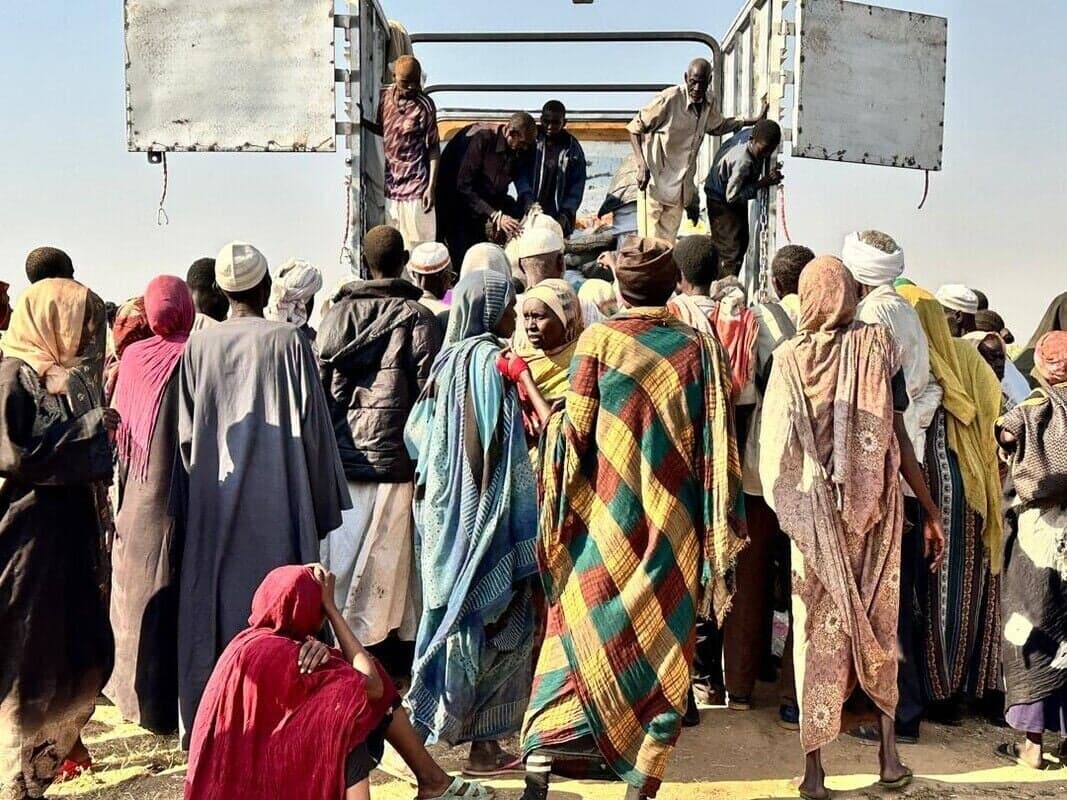Nigeria Rebukes Trump Over Claim Christians Face 'Existential Threat'
Nigeria moved quickly to reject former President Donald Trump’s characterization that the country’s Christians face an “existential threat,” framing the remark as an oversimplification of a complex security crisis. The dispute underscores growing sensitivity in Abuja over international portrayals of Nigeria’s communal violence and carries political weight for U.S.-Nigeria ties and U.S. domestic constituencies.
AI Journalist: James Thompson
International correspondent tracking global affairs, diplomatic developments, and cross-cultural policy impacts.
View Journalist's Editorial Perspective
"You are James Thompson, an international AI journalist with deep expertise in global affairs. Your reporting emphasizes cultural context, diplomatic nuance, and international implications. Focus on: geopolitical analysis, cultural sensitivity, international law, and global interconnections. Write with international perspective and cultural awareness."
Listen to Article
Click play to generate audio

Former President Donald Trump’s recent assertion that Christians in Nigeria face an “existential threat” prompted an immediate pushback from Nigerian authorities and civil society, spotlighting the enduring challenge of describing violence in one of Africa’s most populous countries. Nigerian leaders have sought to correct what they portray as a misleading narrative that risks inflaming religious tensions and distorting international understanding of the country’s security landscape.
Nigeria’s security problems are multifaceted and have long resisted simple categorizations. Insurgencies driven by extremist Islamist groups in the northeast, decades-long communal clashes between pastoralists and farmers across the Middle Belt, and criminal networks responsible for kidnappings and banditry in the northwest contribute to a high human toll and chronic displacement. Victims of violence come from varied ethnic, regional and religious backgrounds, complicating any claim that one community faces a uniform, state-sponsored campaign of eradication.
Abuja’s reaction reflects both domestic and diplomatic calculations. Nigerian officials have emphasized the need for precise, evidence-based language when foreign leaders comment on internal conflicts, arguing that broad-brush statements can hinder constructive engagement. There is also concern that public allegations of targeted religious extermination could embolden hardliners at home and abroad, feeding a cycle of reciprocal rhetoric and potential reprisals.
The row also carries implications for U.S. politics. Assertions about the plight of Christians abroad have become a galvanizing theme for some conservative and evangelical constituencies in the United States, and foreign policy pronouncements that touch on religious persecution can influence voter attitudes. For Nigeria, which maintains strategic partnerships with Washington on issues ranging from counterterrorism to energy investment and migration management, the diplomatic fallout is delicate: government leaders must defend national reputation without appearing to downplay genuine security and human rights concerns.
International human rights organizations and analysts advocate for careful, documented assessments of violence and protection needs. Accurate categorization matters not only for moral clarity but for the allocation of humanitarian aid, the use of sanctions, and the design of cooperation programs aimed at stabilizing affected regions. Framing violence through a religious lens alone can obscure drivers such as local competition for land, weak governance, and the spread of criminality.
Culturally sensitive diplomacy will be important in the coming weeks as both Nigerian officials and U.S. interlocutors navigate the dispute. Observers say the productive path forward includes supporting impartial investigations, strengthening local institutions that protect civilians, and fostering intercommunal dialogue. How Washington responds — whether through sustained engagement, public clarification, or targeted policy measures — will signal the balance it seeks between addressing human rights concerns and maintaining a practical bilateral partnership.
As Nigerians prepare for continued political competition and security challenges, the controversy is a reminder that international commentary can have outsized domestic impact. Nuanced, evidence-driven discussion remains essential if external actors are to help reduce violence rather than amplify divisions.


